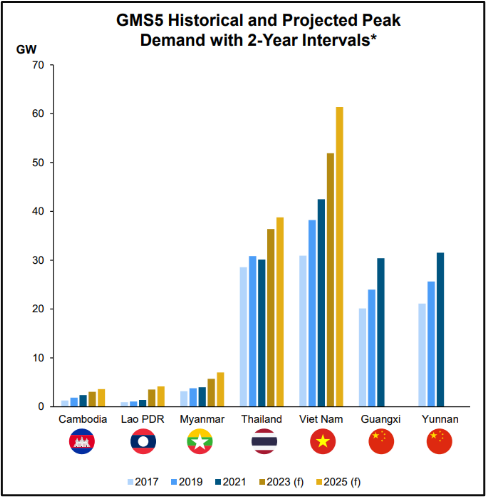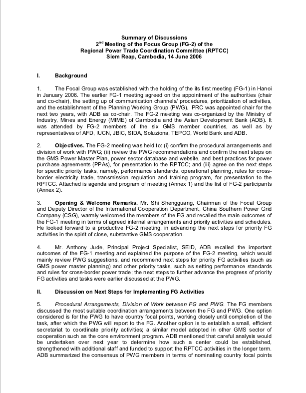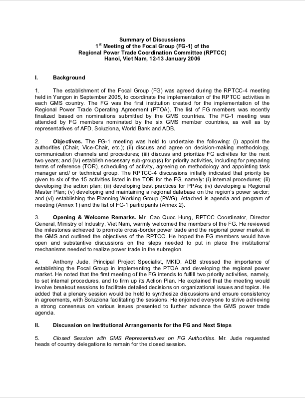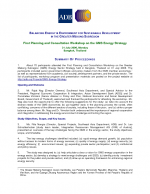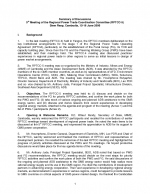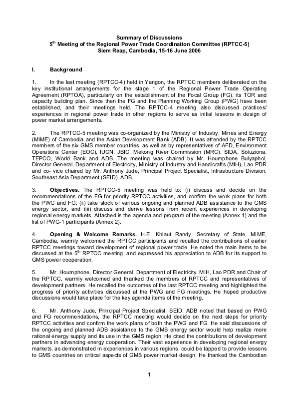
5th Meeting of the Regional Power Trade Coordination Committee (RPTCC-5) Siem Reap, Cambodia, 15-16 June 2006
In the last meeting (RPTCC-4) held in Yangon, the RPTCC members deliberated on the key institutional arrangements for the stage 1 of the Regional Power Trade Operating Agreement (RPTOA), particularly on the establishment of the Focal Group (FG), its TOR and capacity building plan. Since then the FG and the Planning Working Group (PWG) have been established, and their meetings held. The RPTCC-4 meeting also discussed practices/ experiences in regional power trade in other regions to serve as initial lessons in design of power market arrangements.

